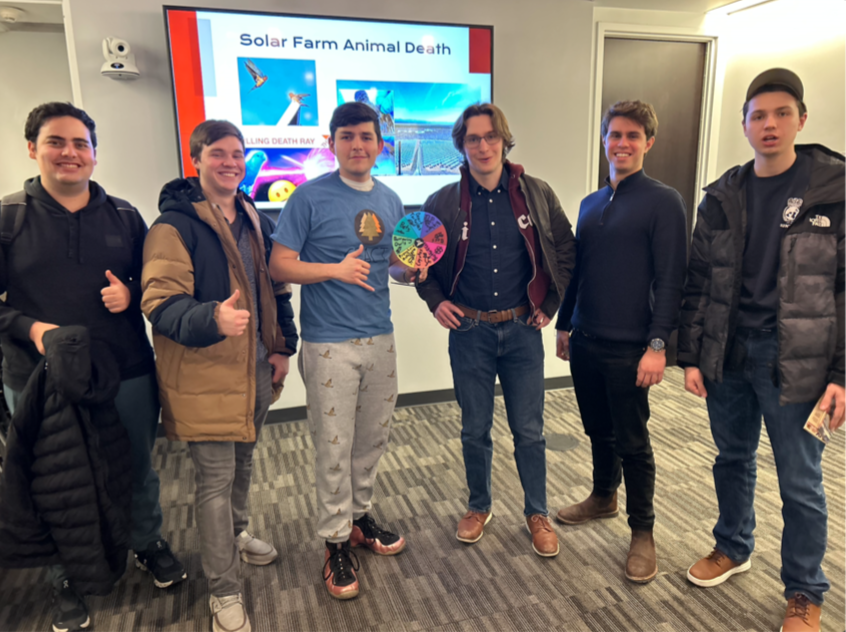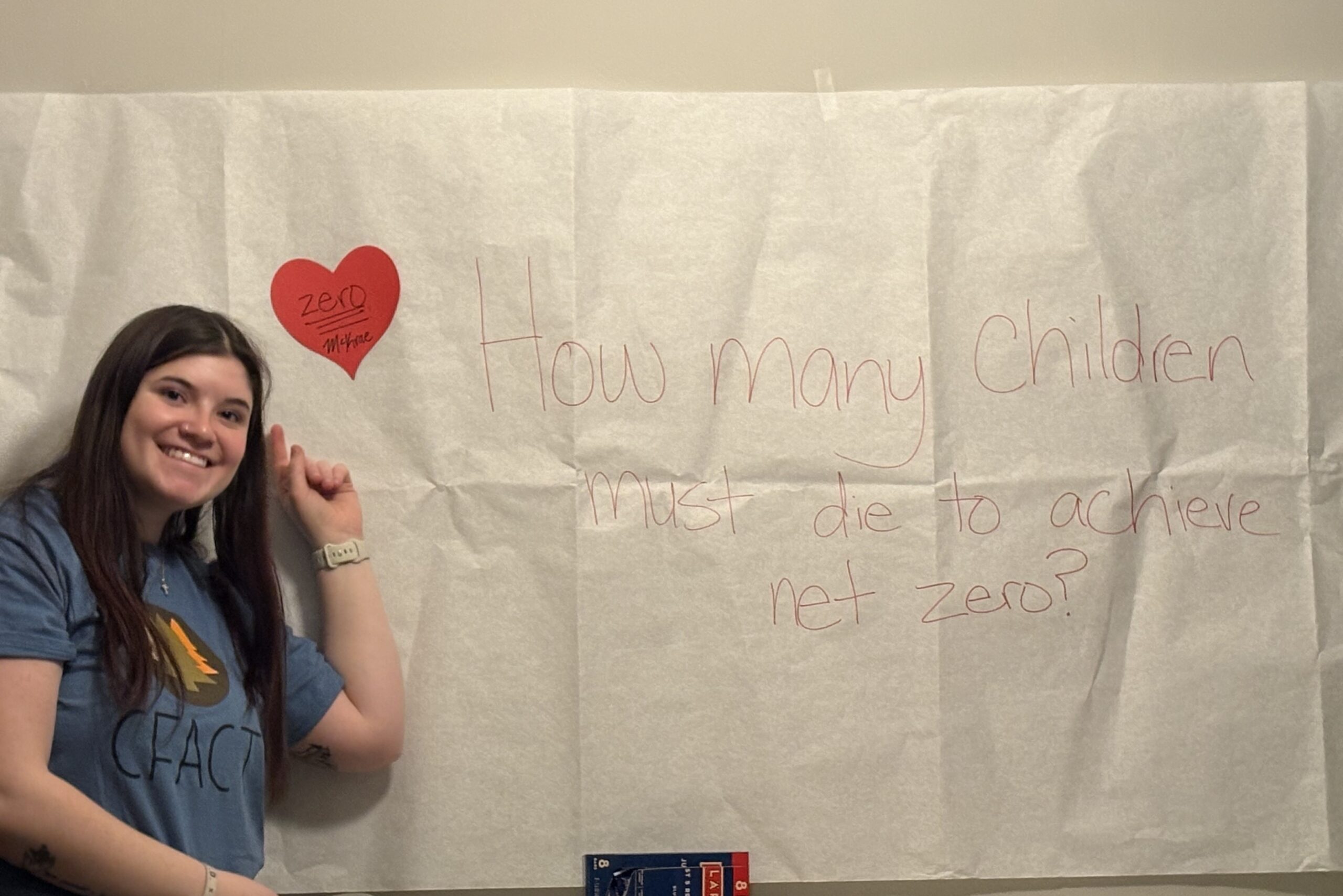It is estimated that 100 million birds die each year from flying into windows in America. The University of Pittsburgh, surrounded by tall buildings and structures with windows, seemed like an ideal school to show off free market solutions to this environmental problem.
While not a guaranteed solution, bird decals placed on a window could prevent birds from flying into them. When the sun shines on the decal, it shines like a flashlight to birds to warn them. Humans are unable to see this reflection because birds have more sensitive UV receptors than humans.
“Rather than the government writing ineffective and burdensome regulations, bird decals can help solve bird deaths by themselves,” said CFACT National Director of Collegians, Adam Houser. “This shows that the innovations of capitalism can actually help the environment. This is something that many college students are very surprised to learn about.”
Freshmen Krista Haigh and Griffin Lynch were two such students. “That’s interesting,” remarked Krista. “I’ll definitely sign up for a club that talks about this stuff.”
Many professors with socialist or extreme liberal alignments would never admit it, but wealthy, capitalist nations are much better at protecting the environment than socialist ones. This is because as a country gains affluence, the technology also improves which can help better clean the air or recycle hazardous materials. Also, the more wealthy individuals in a nation, the more likely they are going to want to give back to non-profits and humanitarian initiatives. Programs pursued by companies, non-profits, and religious institutions are always more efficient and effective than any government program.
“This outreach is a way to open students’ minds about the environment and remove the stigmas they may have heard about capitalism or conservative principles,” added Houser. “It’s just a first step, but its an important one to start winning the minds of the upcoming generation.”




